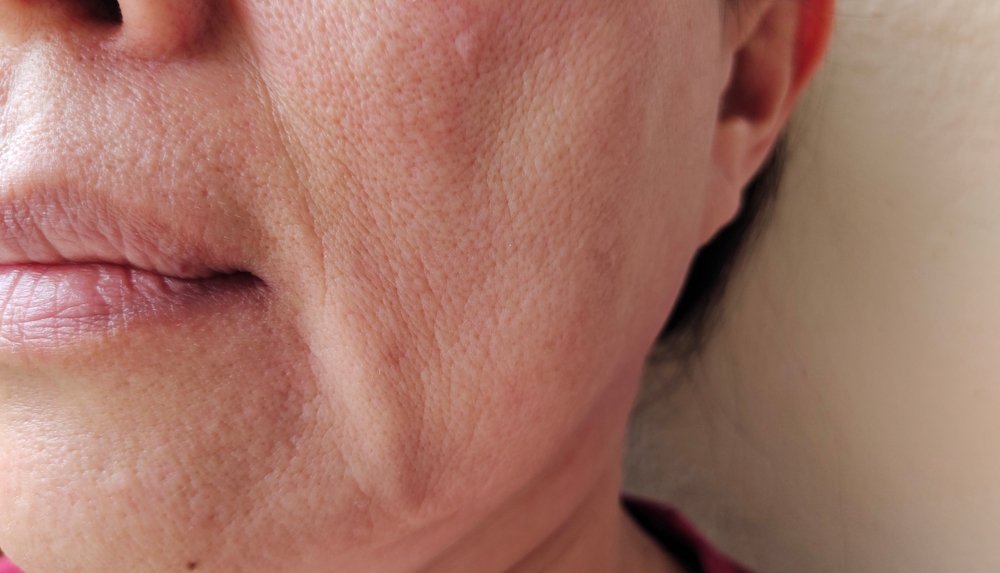The most subtle signs can indicate danger
Paying attention to seemingly minor symptoms like the ones in this article could be life-saving. Such symptoms could indicate serious health problems, so timely diagnosis and treatment are essential.

Persistent vomiting and diarrhea
Stomach viruses can lead to severe vomiting and diarrhea, resulting in dangerous dehydration. If symptoms persist for more than a few days, it could be a bacterial infection requiring medication from a doctor.
Unexplained weight loss
Losing weight without effort can be dangerous, as it may signal serious health issues like ovarian cancer. Rapid weight loss should not be ignored, especially if it is accompanied by other symptoms.
Noticeable weight gain
Doctors warn that a rapidly expanding waistline with unchanged eating habits may signal heart disease. Abdominal swelling likely indicates fluid buildup from liver or heart issues.
Deep cuts or wounds
When it comes to deep cuts or wounds, you must address the injuries promptly to prevent infections. Physicians only stitch wounds within 19 or so hours and bacteria can multiply quickly, leading to dangerous infections. Cover stitched wounds with bandages and ointment, then seek medical help if red, swollen, or moist.
Sagging face, weak arm, or difficulty speaking
It's important to recognize these as stroke symptoms and seek immediate assistance. Ischemic stroke is the most common type of stroke, and it occurs when a clot blocks a brain blood vessel. Tissue plasminogen activator (tPA) medication can dissolve the clot if administered within hours for best results.
Blurred or double vision
Seeing things unclearly or needing a sudden change in your prescription may not simply mean that you require new glasses. Both of these could indicate more severe health issues such as diabetes or potentially a stroke. Get in touch with your physician immediately if you experience this suddenly.
Shortness of breath
Sudden shortness of breath could signal health issues such as obstructive pulmonary disease or bronchitis. If accompanied by fever or cough, contact your doctor to discuss possible COVID-19 testing due to the potentially serious nature of breathing difficulties.
Random confusion
If you notice sudden issues with focus, coherence, or behavior, talk to your doctor. It could be minor but may indicate a serious problem like infection or mental disorder, so don't dismiss it.
Regular bouts of indigestion and heartburn
The combination of indigestion and heartburn occurring on a regular basis could indicate cardiovascular disease. Heart disease is the leading cause of death in women and symptoms often manifest differently than in men, so it's important to see your doctor if you notice a recurrent pattern of these symptoms.
Swollen and bruised limbs and extremities
You should promptly seek medical help if you suspect a fracture to prevent improper healing. Ideally, you should visit a doctor within 48 hours for assessment and X-rays. For severe cases, go directly to the emergency room. Treatment varies based on the type and severity of the injury.
 Andrey Pozharskiy, Shutterstock
Andrey Pozharskiy, Shutterstock
Concurrent pain in shoulder and back
Persistent discomfort in the shoulder region and back may indicate heart disease. A doctor will evaluate all of your symptoms to see if the issue truly is cardiovascular, but time is of the essence. Make sure to act promptly to avoid worsening conditions.
Burning sensation or unusual discharge "down there"
A burning sensation or unusual discharge that is seen after intimacy is usually a sign of infection. Ignoring these symptoms can lead to serious consequences. Immediate treatment is crucial to prevent complications like pelvic inflammatory disease in women, and delayed treatment increases risk of spreading the infection.
Painful, red, and itchy rashes or blisters
A breakout of rashes or blisters is likely to be shingles, which is caused by the same virus as chicken pox. It typically presents with symptoms like body temperature increase, headaches, and fatigue. It is crucial to contact a doctor early for antiviral medication to reduce virus activity.
Moles that have changed in appearance
If a mole changes in size or color, see a doctor right away to check for malignant melanoma. Diagnosis may involve biopsy or ultrasound, followed by surgery or other treatments.
Sudden hair loss or thinning
Seeing a few hairs on your pillow or on your towel after a shower is normal, but significant thinning could indicate an underlying health issue. Consult a doctor for possible causes like thyroid disease or vitamin deficiency.
Loss of appetite
Consult with your doctor if you regularly lose your appetite and experience symptoms like nausea, vomiting, weight loss, or bloating. Satiety from minimal food intake may not indicate serious health issues like ovarian cancer, ulcers, or reflux.
Always being thirsty
When you're constantly thirsty, your body is telling you that it is in dire need of hydration. Excessive thirst also warns of potential diabetes. If you have persistent unquenchable thirst, it's best to get medical advice.
Masses or lumps
Early detection of lumps is crucial for both men and women as they could indicate serious health issues like cancer. Self-examinations as well as physical exams by doctors should be performed regularly.
A severe headache that comes out of nowhere
A severe headache could indicate serious underlying issues, so it is important to not only rely on medication and rest for relief. It could be related to diet, sleep, or more severe conditions like a brain tumor or aneurysm.
Dark, irregular stools
Bowel movements are a great reflection of your internal health, and abnormalities with such can signal pressing issues. You should always tell your doctor if there is a change in your bowel habits, particularly if your stools take on a darker appearance or if they are accompanied with bleeding.
Always needing to go
Frequent urination or increased urge to urinate may signal diabetes, along with fatigue and excessive thirst. It could also be linked to other health problems like infections or overactive bladder.
Never-ending fatigue
Feeling exhausted after a long day of work or a busy day with family is common, but if you are constantly tired, it may be a sign of something more serious that your body is trying to convey. Your doctor may request blood tests to detect disorders, which could include diabetes among the possible diagnoses.
Unshakeable depression
Mental health is still health. Many people may experience clinical depression and not even know it simply because they are downplaying their symptoms. Any drastic, seemingly permanent change in mood should be medically investigated.
Excessive sleep or not enough sleep
Spending extra hours sleeping or having difficulty getting up in the morning despite having had a full night's rest could be a sign of depression. Similarly, having trouble sleeping or not getting enough sleep at night could indicate a deeper psychological issue that may need further investigation.
 StoryTime Studio, Shutterstock
StoryTime Studio, Shutterstock
Hot or cold intolerance
Hot or cold sensitivity may signal underlying health issues like hormonal imbalances, particularly in thyroid problems. Hyperthyroidism can cause heat sensitivity and sweating, while hypothyroidism can cause cold sensitivity. Anemia, diabetes, and neurological disorders can also affect temperature regulation






























